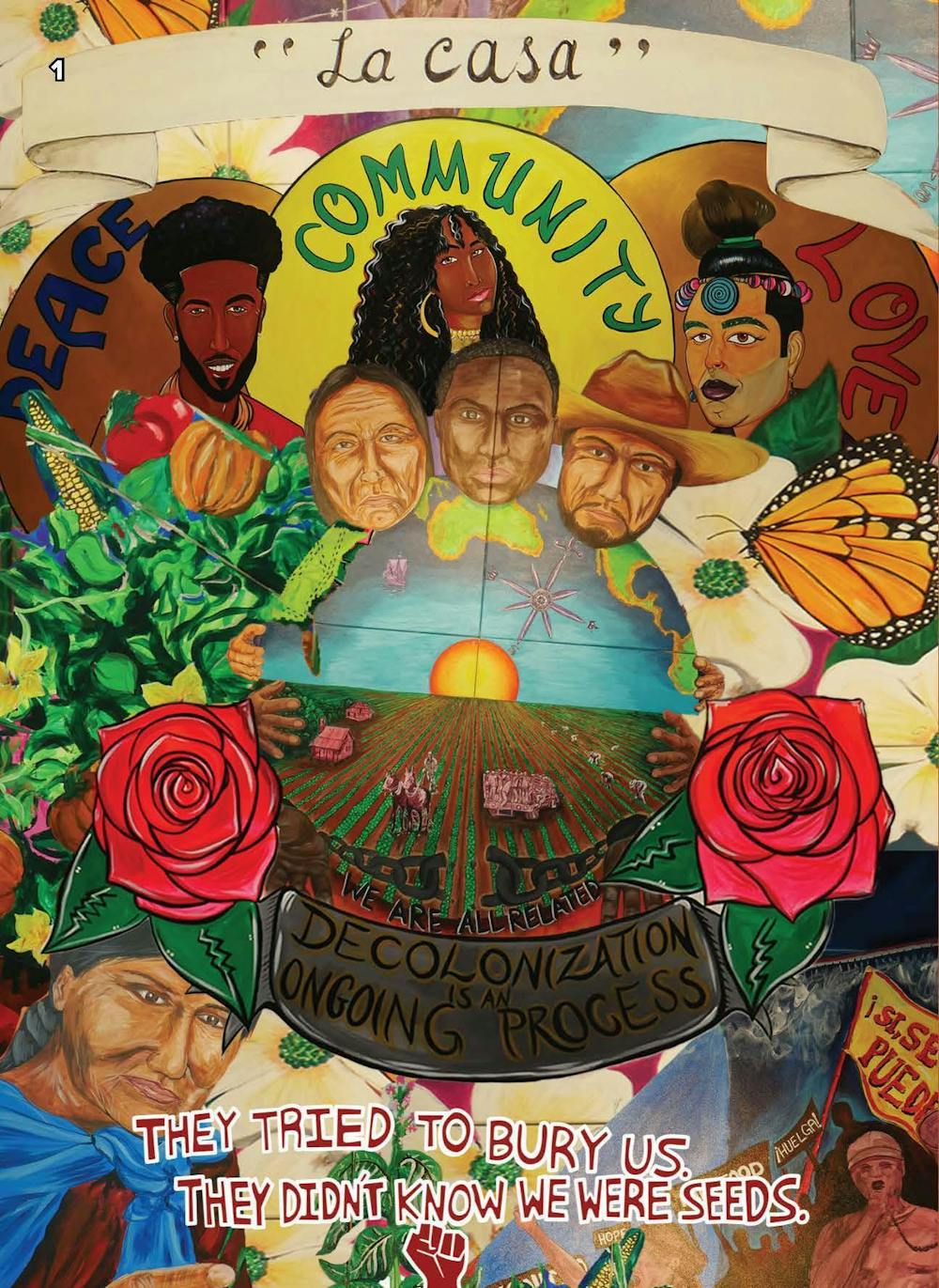Emmy award-winning journalist Paola Ramos spoke on Wednesday about her life’s journey and discussed the significance of the term “Latinx.”
Ramos, a correspondent for Vice and author of “Finding Latinx: In Search of the Voices Redefining Latino Identity,” was the keynote speaker at a celebration of Latinx Heritage Month. The event was organized by the Speakers and Stage committee of Duke University Union, the Center for Multicultural Affairs and Mi Gente.
The event was moderated by Alex Espaillat, assistant director of the CMA, junior Yadira Paz-Martinez and sophomore Irma Lopez-Calderon.
Ramos began by reflecting on her upbringing as the daughter of two immigrants. She described spending much of her childhood moving between Madrid and Miami due to her parents’ separation before settling in Miami at the age of 16.
Discovering her place
While attending Barnard College, Ramos realized what it meant to be Latinx on a predominantly white campus. She recalled how on the first day of class, her teacher had instructed her to an English as a second language workshop and she “realized on campus that [her] English wasn’t good at all.”
“Coming from Miami … because there’s so many [Latinx people], it doesn’t necessarily push you to interrogate your identity in the way that you should,” she said.
Ramos noted that, during her entire four years of college, she never raised her hand because she was “so scared of talking.” Ultimately, however, the experience further allowed her to connect with people who were going through the same experience.
After graduating from Barnard, Ramos served as a political appointee during the Obama administration and also on Obama’s 2012 reelection campaign. She then served as the deputy director of Hispanic media for Hillary Clinton’s 2016 presidential campaign.
“2016 is when I started questioning everything that I had learned inside of politics,” Ramos said. “All these stories that I had in my mind about what it meant to be us, it didn’t end up truly being true.”
Lessons from journalism
Ramos eventually switched to a career in journalism after being disillusioned by politics, and spoke about the lessons she learned from her parents, who are both journalists themselves.
From her father, Ramos recalled her father telling her one time about his “political aspirations” and a desire to return to Mexico. Ramos eventually questioned him about why he never actually went about pursuing a career in politics.
“He felt like, now that he was a journalist, that he would always have more power as a journalist, because he had the opportunity to challenge power and to ask questions … to question the status quo,” she said.
It was then Ramos saw the “privilege” of having a microphone, and the responsibility that comes with being a journalist.
From her mother, Ramos learned the “importance of being humble and having integrity when you’re telling stories.”
“The core of any story is to build trust,” she said. “I can’t go to the border, I can’t go anywhere across the country, I can’t go to Latin America unless I have genuine trust from the people.”
As a journalist, Ramos has reported on stories in a variety of places in Latin America, including interviewing cartel members in Mexico. However, she cited her experience crossing the “dense jungle” of the Darién Gap as her most impactful and memorable story, which allowed her the unique opportunity to speak with immigrants daring to make the notoriously dangerous journey.
Ramos described meeting mothers that were carrying their children through the jungle for over 10 days, and being able to get personal insight into why they were making the journey and what kept them going.
“Crossing the jungle and meeting those people and then seeing them in the United States when they made it — I think there’s nothing like that type of [experience] that I’ve ever encountered,” she said.
Fighting for inclusivity
Responding to a question about identity and belonging, Ramos recalled how, growing up, her grandfather used to create a “space of refuge” at the dinner table. She related this to the responsibility that people should place on themselves for creating such inclusive spaces.
“When you’re in positions of power like you, you look down at the table and you need to always ask, ‘Who’s missing?’” she said. “You need to start with that very simple question.”
Ramos then answered a question about coalition building, saying that the Latinx community has a “very rich history of coalition building,” referencing the Chicano and Civil Rights Movements. Regardless, Ramos believes that there is still room for improvement.
“Two summers ago, when there were all the protests during George Floyd’s murder, I think then there was this other opportunity that told us that we could do a better job of doing coalition building,” she said. “...There is a need for us to do better and there is a need to build stronger coalitions between black and brown people.”
Throughout the talk, Ramos discussed the significance of the term Latinx, and how it is a source of great contention within the Latinx community. She said that she generally believes that “we as a community have a lot more in common than not.”
Ramos explained what she calls the “fall of Latinx,” referring to the pushback the term has received over the past couple of years. Ramos noted how the term had become, like many other things over the last few years, increasingly politically charged, and how much of the pushback came from both in and out the Latinx community.
Ramos ended the talk on an optimistic note, assuring the audience that “things will continue to get better,” noting that the country is at its highest rate of first-time voters and how “young people are leaning into their identities.”
Get The Chronicle straight to your inbox
Signup for our weekly newsletter. Cancel at any time.
Jeremiah Fang is a Trinity sophomore and a staff reporter for the news department.

